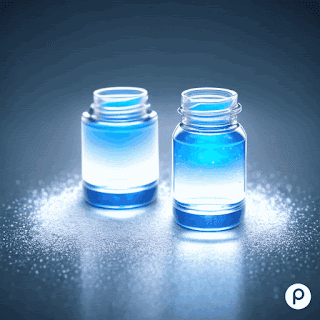Microcrystalline Cellulose (MCC) in Pharmaceutical Applications

Microcrystalline cellulose (MCC) is a refined wood pulp derivative that consists of small, crystalline particles of cellulose. It is produced through controlled hydrolysis of cellulose, resulting in a highly purified and uniform product. MCC is widely used in the pharmaceutical industry due to its unique properties and versatility.
Properties and Characteristics of Microcrystalline Cellulose
Chemical structure and composition
Microcrystalline cellulose (MCC) is primarily composed of cellulose, a natural polymer consisting of glucose units linked together. It is obtained from wood pulp or other plant sources through controlled hydrolysis.
Physical properties
Particle size: MCC particles are fine and typically range in size from 10 to 200 micrometres, with a high percentage falling within the 20 to 60 micrometre range.
Density: MCC has a relatively low bulk density, typically around 0.2-0.5 g/cm³.
Flowability: MCC exhibits excellent flowability due to its fine particle size and uniform particle distribution.
Functional properties
Binders: MCC is commonly used as a binder in tablet formulations.
Diluents: MCC serves as a diluent or filler in tablet formulations.
Disintegrants: MCC acts as a disintegrant, facilitating the breakup and dissolution of tablets.
Applications of Microcrystalline Cellulose in Pharmaceuticals
Tablet formulation and manufacturing
MCC is widely used as a direct compression excipient in tablet formulation and manufacturing.
Capsule formulation
MCC is commonly used as a filling agent in capsule formulations.
Granulation and dry powder inhalation
MCC plays a crucial role in wet granulation processes used for tablet manufacturing.
Advantages and Benefits of Microcrystalline Cellulose
Improved tablet hardness and integrity: MCC offers the advantage of improving tablet hardness and integrity.
Enhanced drug release: MCC plays a significant role in enhancing drug release and dissolution rates.
API compatibility: One of the key advantages of MCC is its compatibility with a wide range of active pharmaceutical ingredients.
Stability: MCC demonstrates excellent stability and inertness, making it suitable for different storage conditions.
Manufacturing and Quality Considerations
Microcrystalline cellulose (MCC) is manufactured through controlled hydrolysis of cellulose, which can be derived from various sources such as wood pulp or plant-based materials.
Safety and Regulatory Aspects
Microcrystalline cellulose (MCC) has undergone extensive toxicological studies and safety assessments to ensure its suitability for use in pharmaceutical applications.
Future Perspectives
The future holds exciting possibilities for the utilization of microcrystalline cellulose (MCC) in various applications beyond its current uses.

No comments:
Post a Comment